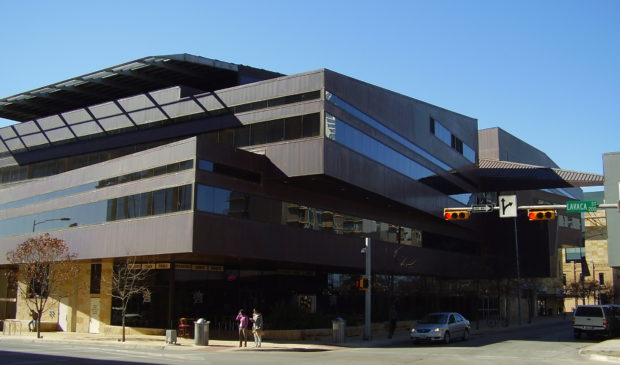City tax increase likely, but not 8 percent
Thursday, June 10, 2021 by
Jo Clifton Although City Council can raise the city’s tax rate by 8 percent under Gov. Greg Abbott’s disaster declaration related to Winter Storm Uri, Council members will have to carefully weigh how to spend any revenue collected on money generated above the 3.5 percent cap. Because it won’t be there next year.
As interim Budget Officer Kerri Lang explained in a memo to Council last week, Senate Bill 1438, approved by the Legislature on May 30, prohibits a city from using the disaster declaration related to the pandemic to calculate its voter approval tax rate at 8 percent. However, cities can still calculate the rate of 8 percent as a result of the winter storm declaration. But there’s a catch that will prevent that one-time money from becoming a permanent part of the budget without voter approval.
As Lang writes, “Once the disaster calculation has expired, the city is again required to calculate its voter approval tax rate at 3.5 percent, and further, is required to reduce its property tax revenue base by the ’emergency revenue rate,’ which is the incremental rate above and beyond 3.5 percent that the city adopted in the disaster year. For example, if the city were to adopt a property tax increase of 5 percent for Fiscal Year 2021-22, it would have to remove the revenue gained from the 1.5 percent increase above 3.5 percent in the next fiscal year,” in its calculation of property taxes. “In effect, the property tax revenue collected over and above 3.5 percent as adopted in a disaster year is one-time revenue.”
This is happening because in 2019, the Legislature adopted the 3.5 percent property tax increase ceiling for city maintenance and operations – unless the city calls an election to get voter approval. Before 2019, cities, counties and other taxing entities were allowed to raise property taxes by up to 8 percent without voter approval.
As Lang wrote in an April 16 memo to Council, “Since that time, projections have consistently shown a General Fund deficit beginning in Fiscal Year 2021-22 when property tax revenue increases are limited by the 3.5 percent threshold. The FY 2022-26 financial forecast projects that with a 3.5 percent property tax increase in each year of the forecast, General Fund expenditures would exceed available revenue by $23.3 million in FY 2022, with this deficit rising to $70.8 million by FY 2026.”
In response to a question from the Austin Monitor about how the city might spend any money above the 3.5 percent increase, Council Member Leslie Pool suggested purchases of real estate, a hotel, master plans and investments in setting up programs. She said the city could shift all of its one-time funding to be paid for by what are essentially one-time funds.
Pool also noted that the city continues to gain new developments, which means more property tax revenue. Various departments can also raise fees to cover the cost of their services. In her April 16 memo, Lang showed forecasted fee increases for the next five years. For example, the transportation user fee is projected to increase from the current $13.04 to $14.96 in 2022 and to $17.51 in 2024.
Overall, budget planners projected that taxes and fees will increase by 2.1 percent per year on average over the next five years. It’s not clear, however, how much those things might change as a result of state law.
The Austin Monitor’s work is made possible by donations from the community. Though our reporting covers donors from time to time, we are careful to keep business and editorial efforts separate while maintaining transparency. A complete list of donors is available here, and our code of ethics is explained here.
You're a community leader
And we’re honored you look to us for serious, in-depth news. You know a strong community needs local and dedicated watchdog reporting. We’re here for you and that won’t change. Now will you take the powerful next step and support our nonprofit news organization?






